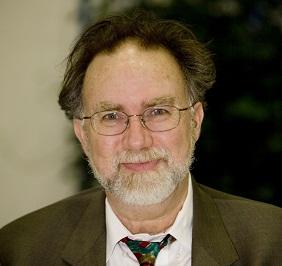Changing the Landscape: The UN Open-Ended Working Group on Nuclear Disarmament

See The Simons Foundation's Nuclear Disarmament Briefing Papers for occasional papers focussing on nuclear disarmament issues.
Changing the Landscape: The UN Open-Ended Working Group on Nuclear Disarmament
By John Burroughs, J.D., Ph.D.
Fellow, The Simons Foundation
October 5, 2016
The 2016 UN Open-ended Working Group taking forward multilateral nuclear disarmament negotiations (OEWG) and the preceding governmental conferences on the humanitarian impact of nuclear weapons have changed the landscape for efforts to achieve a world free of nuclear weapons. This is true even though, aside from the agreement with Iran on limiting its nuclear program, in other respects the trends have been quite negative. All states possessing nuclear arsenals are maintaining and modernizing them, with full-scale nuclear arms racing underway in South Asia and testing by North Korea, and there are serious geopolitical tensions between the United States and Russia, and the United States and China. Notwithstanding these trends, the OEWG and the humanitarian conferences reflect the determination by many non-nuclear weapon states (NNWS) to press forward; indeed in their view the global security climate makes it all the more urgent to do so. Three important results relate to the humanitarian consequences of nuclear explosions, the imperative of multilateral negotiations, and the nature of possible agreements.
Unspeakable suffering
As is widely acknowledged, the humanitarian conferences and the OEWG have refocused attention on the awful character of the devices known as “nuclear weapons,” underlining the imperative to prevent the use again of these instruments that inflict, as an excellent Reaching Critical Will publication is entitled, “unspeakable suffering”. As a secondary matter, they have raised forcefully once again the incompatibility of employment of nuclear weapons with fundamental rules of the law of armed conflict limiting the scope of war and protecting non-combatants against its effects, as laid out, inter alia, by the Vancouver Declaration released by The Simons Foundation and the International Association of Lawyers Against Nuclear Arms (IALANA) in 2011 and signed by many international lawyers and others around the world. While the states possessing nuclear arsenals continue to refuse to acknowledge that incompatibility, it is widely accepted by other actors. The gap here is fundamentally not one of law, but in declaring and acting upon adherence to the law. It is true, though, that natural and customary law are typically codified in conventional agreements.
Multilateral negotiations
Multilateral negotiations leading to nuclear disarmament are required to fulfill Article VI of the Nuclear Non-Proliferation Treaty (NPT), as was recognized shortly after the NPT was signed by the predecessor to today’s Conference on Disarmament. The humanitarian conferences and the OEWG have highlighted that imperative and the concomitant need to focus on adoption and implementation of a legal instrument or instruments. Professions of intent, commitments, meetings, process are not enough; there must be a legal architecture.
Due to the opposition of the NPT nuclear weapon states, NPT review conferences outcomes have largely failed to reflect the imperative of multilateral negotiations. The 1985 conference did call for the commencement of multilateral negotiations on nuclear disarmament in the Conference on Disarmament. No such provision has been agreed by subsequent conferences. In the 2010 Review Conference, a proposal was on the table effectively to launch such negotiations, but it was rejected by the nuclear weapon states, taking advantage of the NPT practice of consensus. Early in the conference, a draft of the action plan on nuclear disarmament included a provision for an international conference in 2014 to “consider ways and means to agree on a roadmap for the complete elimination of nuclear weapons within a specified timeframe, including by means of a universal, legal instrument.” That provision had disappeared by the end of the Conference due to opposition from some of the nuclear weapon states. The NPT nuclear weapon states also block such negotiations in the Conference on Disarmament.
By establishing the OEWG through a contested General Assembly vote, proponents of the humanitarian disarmament process have underlined the necessity of creating legal instruments through multilateral negotiations not hindered or blocked by a rule of consensus amounting to a requirement of unanimity. So far, however, this has come at the price of the non-participation of all nuclear-armed states. The somewhat hidden failure of the NPT nuclear weapon states to meet their Article VI obligation by participating in multilateral negotiations on nuclear disarmament has now been fully exposed. They did not participate in the OEWG, nor have they pursued any comparable course of action, now or in the past. Further, the signs to date are that the nuclear-armed states will not participate in any process established by the General Assembly to build on the work of the OEWG. Continue reading...
Dr. John Burroughs is Executive Director of Lawyers Committee for Nuclear Policy (LCNP), Executive Director of the United Nations office of the International Association of Lawyers Against Nuclear Arms(IALANA), and a Fellow with The Simons Foundation.